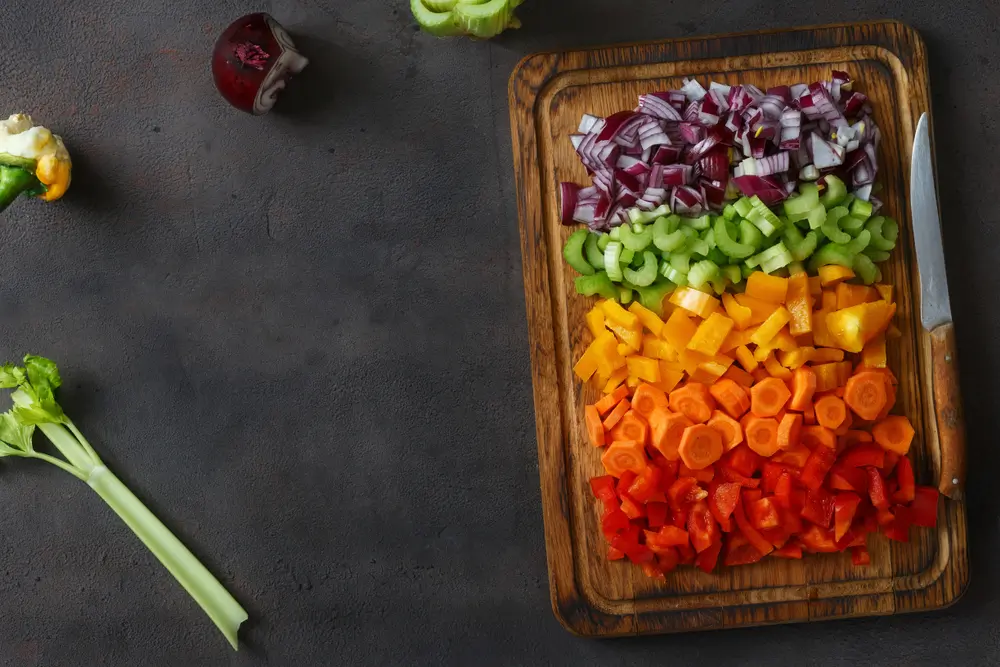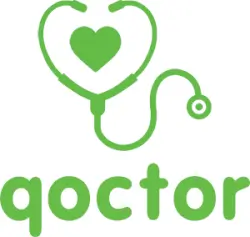Vegan diet- a beginner’s guide
Medically Reviewed by Dr Aifric Boylan
Last updated on 14.06.2024
What is a vegan diet?
A vegan diet, also known as plant-based, describes one that avoids any animal products. There are many subtypes of this diet, including those that sometimes include fish or honey, but for the purposes of this article we will discuss a diet that excludes all animal products. Approximately 10% of the Australian population follows some form of plant-based diet. There are many reasons you may follow a vegan diet, including cultural, personal, ethical, enviromental and health-related. In recent times, there has been a societal association between a vegan diet and better health, however this isn’t necessarily true in all cases.
Why do people go vegan?
Health issues
Some people decide to follow a vegan diet because they develop physical ailments when they consume animal products. For example, if they drink milk or eat cheese, they experience bloating and diarrhoea. Some people get constipated from meat. Others notice their cholesterol and blood sugar is lowered when they remove butter and eggs. There are also reports of people with auto-immune conditions whose symptoms of arthritis or inflammatory bowel disease improve when they exclude animal products from their diet.
Ethics
A large number of of vegans pursue the diet for moral or ethical reasons, often as a reaction to factory farming which has been accused of barbaric practices. Factory farming is a means to produce enough animal products for a growing population, and this pressure can lead to livestock being unhealthy, cramped in close quarters and requiring antibiotics and other medications to keep them alive, which in turn can have consequences when consumed by humans.
The Environment
Meat and dairy farming have strong associations with greenhouse gas emissions and thus, global warming and climate change. Land-clearing, loss of biodiversity and species extinction is also associated with these types of farming. Many people go vegan to try to reduce their carbon footprint and their impact on the environment.
The health effects of a vegan diet
There have been numerous studies that show a link between meat consumption and heart disease, Type 2 diabetes and colorectal cancer. There is also a link between animal product consumption and ‘all cause mortality’, which means dying younger. In most studies, red meat seems to be the main offender. Therefore, diets that avoid animal products may reduce your risk of these diseases, provided a healthy, balanced vegan diet is achieved.
Is being vegan healthy? Are there any risks from being vegan?
Vitamin and Mineral Deficiency
There can be risks from following a vegan diet, particularly nutrient and vitamin deficiency. Vitamin B12, zinc, protein, omega-3, calcium, vitamin D and iron are the main nutrients of concern. These often need to be supplemented and/or can be included in the diet through fortified foods like nutritional yeast and soy milk. However, with careful attention to food choices, building an understanding of which nutrients are present in which foods, and a little bit of planning, it is possible to avoid mineral and vitamin deficiencies when on a vegan diet.
Occasionally, a diet that becomes too restrictive can evolve into an eating disorder. Sometimes people can start out with “clean” eating, then progress to elimination of entire food groups such as dairy or grains, and the avoidance of foods containing artificial additives, foods treated with pesticides, or particular ingredients (e.g. sugar, fat or salt). This can lead to malnutrition and significant health impacts. If you think you, or someone in your care, is displaying signs of an eating disorder, it is important to seek help from your GP- the earlier the better. You can find out more about eating disorders here.

Planning
Another risk with a vegan diet is poor planning, so that animal products are excluded but new foods aren’t introduced. For example, you may choose to go vegan and only eat fries, processed vegan foods and bread, instead of introducing legumes, tofu, fruit and vegetables into your diet. Also, many vegan desserts are high in vegetable oil and sugar, making them extremely unhealthy. It is possible to be obese and unhealthy when vegan!
How to have a healthy vegan diet
A well balanced vegan diet should include plenty of fresh fruit and vegetables, legumes, nuts, wholegrain carbohydrates and tofu, amongst other things- this will mean you get enough protein, nutrients and fibre. A healthy vegan diet will minimise sweetened beverages, fruit juice, refined grains, potatoes/fries, lollies and other processed foods. Dietitians Australia have produced a great article about vegetarian diets (including vegan diets), which covers some important points and tips to optimise your nutrition.
If you choose to follow a vegan diet, remember that you can change your mind or modify your approach at any time. You may find that your body requires different foods at different times of your life, depending on your lifestyle, underlying health conditions, work, exercise regimen and mood.
Some tips from dietitians:
- Eat a varied and well-balanced diet to meet your nutritional needs, with lots of vegetables, fruit, wholegrains, pulses, nuts, seeds and legumes.
- Get to know the nutrients you need to focus on when following a vegetarian diet.
- Take vitamin C with your plant-based source of iron can help boost absorption. Avoid tea and coffee within one hour of meals for better iron absorption.
- Vitmain and mineral supplements may help to ensure you are meeting your nutrient needs, particularly iron, B12 and zinc.
- Some plant-based “meat alternatives” can be highly processed and high in salt. Look at food labels and seek products that are low in saturated fat, and low in salt (less than 400mg per 100g).
- If you have specific nutrient needs, such as breastfeeding, pregnancy, or children adhering to a vegan or vegetarian diet- talk to a health professional.
The bottom line
There can be some benefits in following a plant-based diet, but being vegan does not automatically mean you’ll be healthier- it is important to take steps to ensure you are well informed and getting the nutrients you need. And remember, your nutritional intake isn’t the only important factor in good health- it’s vital to maintain a healthy lifestyle with good sleep, exercise, nurturing positive relationships and developing an internal sense of purpose.
If you decide to follow a vegan diet, you can always seek advice from your doctor or dietitian for up to date knowledge and guidance.
Some other helpful resources:
https://www.healthdirect.gov.au/vegetarian-and-vegan-diets
https://www.nhs.uk/live-well/eat-well/how-to-eat-a-balanced-diet/the-vegan-diet/
https://www.health.harvard.edu/staying-healthy/the-right-plant-based-diet-for-you
https://pubmed.ncbi.nlm.nih.gov/28728684/ Healthful and Unhealthful Plant-Based Diets and the Risk of Coronary Heart Disease in U.S. Adults
https://dietitiansaustralia.org.au/health-advice/vegetarian-diet

Getting a Mental Health Care Plan in Australia: Your Guide
Getting a Mental Health Care Plan in Australia: Your Guide Mental health matters—and if you’re feeling overwhelmed, anxious, or down, a mental health care plan can help. But what is it, and how do [...]
UTI Symptoms and Treatment: What You Need to Know
UTI Symptoms and Treatment: What You Need to Know Urinary Tract Infections (UTIs) are common, uncomfortable, and often disruptive. But what exactly are the signs to watch for, and how can you get relief [...]
Free Mental Health Care Plan Online | Bulk-Billed by Qoctor
Free Mental Health Care Plan Online | Bulk-Billed by Qoctor Discover how to get a free, bulk-billed Mental Health Care Plan (MHCP) in Australia through Qoctor's telehealth service. Accessing [...]





